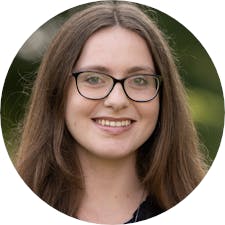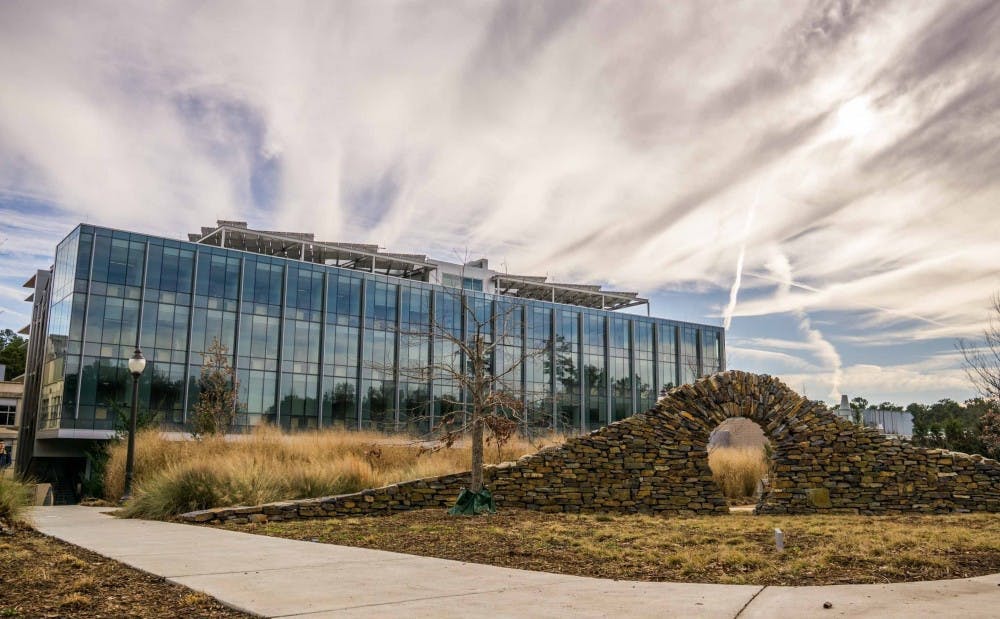The Office of Climate and Sustainability held the first of a nine-session seminar series Tuesday night, bringing together stakeholders from across the Duke community to discuss the investment responsibilities of mission-based institutions.
Duke faculty, students and community members met in the Rubenstein Library’s Holsti-Anderson Family Assembly Room to kick off the series, titled “Investing for Mission-Driven Institutions: Balancing Fiduciary Requirements and Expressing Institutional Values.”
“It’s an opportunity for us at Duke to gather as an intellectual community to discuss the sort of nuances associated with mission-driven investing at institutions like universities, foundations, nonprofits and figuring out whether and how best we align those values with how we treat our investment decisions,” said Tim Profeta, senior fellow at the Nicholas Institute for Energy, Environment and Sustainability and one of the session’s moderators.
The conversation, which was also moderated by senior Brennan McDonald, co-president of the Duke Climate Coalition, focused on the issue of the Duke endowment’s continued investment in fossil fuel companies. Participants specifically debated whether the University has a responsibility to pursue divestment to uphold its core values as a mission-based institution.
Profeta acknowledged that the series does not serve as a replacement for the official grievance process through the Advisory Committee on Investment Responsibility, the organization that assists the Duke president in making investment recommendations to the Board of Trustees.
Instead, the sessions are intended to serve as a space for members of the Duke community to participate in informal discussions about mission-driven institutions’ investment practices. Profeta further emphasized that the series would not function as a decision-making forum, as participants will not provide any official recommendation to the Duke University Management Company (DUMAC) at its conclusion.
“I could think of no better way than to do something like this on a university campus, which is where we need to invite this kind of conversation and collaboration with faculty, staff and students,” said Toddi Steelman, vice president and vice provost for climate and sustainability. “I think it’s a really exciting setting for us to have this conversation.”
The seminar was attended by a variety of stakeholders in the Duke community, featuring 20 students from both undergraduate and graduate programs, 11 faculty and staff members and one recent alumnus.
Participants largely agreed that Duke bears a responsibility to pursue ethical investment practices with regard to the climate crisis, especially in light of the Climate Commitment’s direct incorporation of sustainable practices in education, research, external engagement and campus operations into the University’s mission.
“Duke really prides itself on being a hub for climate and … has done a lot of publicity on [being] climate-forward,” senior Rosa Golchin said. “I think it’s the mismatch between that statement and the action [of continuing to invest in fossil fuel companies] that can be really frustrating.”
Additional topics included questions of what Duke’s mission entails, whether the University’s values extend to its endowment, what role transparency with investments plays in upholding these values and what possible frontiers for alternative investment practices exist.
“At the end of this series, I’m hoping not that we reach a consensus between us — I think that might be overambitious,” Profeta said. “But I do hope we will have a more reasoned debate based on the common set of information we receive from this series, and from there we can hopefully find our institution’s best path forward.”
The next session, scheduled for Oct. 24, will be moderated by Sarah Raskin, Colin W. Brown distinguished professor of the practice of law, and graduate student Meera Ayyagari, director of environment and sustainability for the Graduate and Professional Student Government. It is set to explore the concept of fiduciary duty and whether responsibility differs between non-profit and for-profit organizations.
Each of the nine sessions will be moderated jointly by one faculty member and one student, and many will feature input from “experts from around the Duke community [and] around the world,” according to Profeta.
Participating faculty members will alternate between Profeta, Raskin and Ronnie Chatterji, Mark Burgess & Lisa Benson-Burgess distinguished professor of business and public policy. The moderating students will include Ayyagari, McDonald and senior Emily Nagamoto, president of the Undergraduate Environmental Union.
Get The Chronicle straight to your inbox
Signup for our weekly newsletter. Cancel at any time.

Zoe Kolenovsky is a Trinity sophomore and news editor of The Chronicle's 120th volume.

